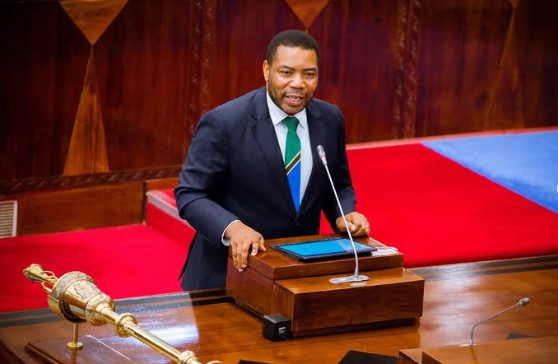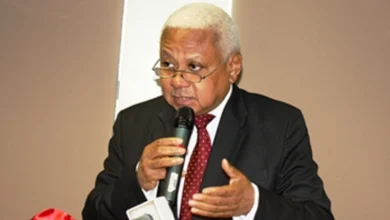Budget sails smoothly

- Govt assures that election won’t derail projects
DODOMA: THE National Assembly on Tuesday endorsed the national budget for the fiscal year 2025/26 through a majority vote, clearing the way for the implementation of the government’s 56.49 tri/- spending plan.
A total of 373 MPs, representing 98.7 per cent, voted in favour of the budget, with only five abstentions and no votes against.
Speaker Dr Tulia Ackson, who chaired the meeting, declared that the Appropriation Bill 2025, tabled by Finance Minister Dr Mwigulu Nchemba for first, second and third reading yesterday, had been passed by a majority of the lawmakers.
During earlier deliberations, Minister of State in the President’s Office (Planning and Investment), Professor Kitila Mkumbo, Finance Minister Dr Mwigulu Nchemba had responded to queries raised by lawmakers during the weeklong budget debate.
Dr Nchemba assured the august House that, despite the country approaching the General Election scheduled for October this year, all funds requested for implementing development projects in the 2025/26 fiscal year will be released as planned.
ALSO READ: COLUMN: THE CLIFF. Hormuz fire: Africa’s budgets burn next?
Winding up a seven-day debate on the State of the Economy, the 2025/2026 National Development Plan, and the government’s budget proposals for the upcoming financial year in the National Assembly yesterday, Dr Nchemba stressed that a key component of the approved budget is the implementation of the outlined projects, which the government is committed to executing.
He said that, in addition to the new projects included in the 2025/26 fiscal year, the ongoing development projects have also been fully accommodated in the upcoming spending plan.
“Despite the upcoming general election, the requested funds for implementing projects as outlined in the approved ministry budgets will be released accordingly.
Since you, Members of Parliament, will be in your constituencies, you will witness the execution of these projects,” he pointed out.
Dr Nchemba stressed that the identified projects remain the government’s top priority, addressing concerns raised by some MPs during the debate, who doubted whether these projects would be implemented amid the election preparations.
“We are committed to implementing these projects, and we have a strong track record of doing so,” he affirmed.
He added, “The amount of funds allocated to the health sector clearly reflects the kind of government we have. The same applies to other sectors like education, the budget for fee-free education, higher learning and other flagship strategic projects speaks for itself.”
He explained that funding for the implementation of the Standard Gauge Railway (SGR) Project’s Lot 5 (Mwanza), Lot 6 and Lot 7 has already been secured, while the government is finalising financing arrangements for the completion of Lot 3 and Lot 4.
On the issue of national debt, the minister urged the public not to focus solely on the figure, which is currently at 107.7tri/-, instead they must consider the development projects financed through the said funds.
ALSO READ: Temeke approves 70bn/- budget for five major projects
“We shouldn’t just compare numbers and say the debt has increased. This is our money; it’s a matter of priorities,” he said.
He added that relying solely on domestic revenue would have significantly delayed the implementation of projects such as the SGR.
Dr Nchemba informed lawmakers that strategic projects like the Julius Nyerere Hydropower Plant and the JP Magufuli Bridge were funded using internally generated resources, stressing that not all projects depend on external borrowing.
He emphasised Tanzania’s long-standing reputation for prudent use of development funds, dating back to the 1960s when the country began securing loans for infrastructure and other key projects.
“This responsible track record is why development partners continue to trust Tanzania,” he said.
Earlier, Minister Mkumbo, told MPs that Tanzania has successfully absorbed global economic shocks, thanks to the visionary leadership of President Samia Suluhu Hassan and the country’s diversified economy.
He noted that unlike many countries, Tanzania does not rely on a single economic sector but benefits from a broad base including agriculture, tourism and minerals.
With the national growth rate currently estimated at 6 per cent, Prof Mkumbo said Tanzania has avoided negative growth since 2020, demonstrating resilience despite global disruptions.
“For over a decade, the country has kept inflation within acceptable limits while continuing to fulfill its responsibilities, maintain peace and security and deliver development to its people,” he added.





